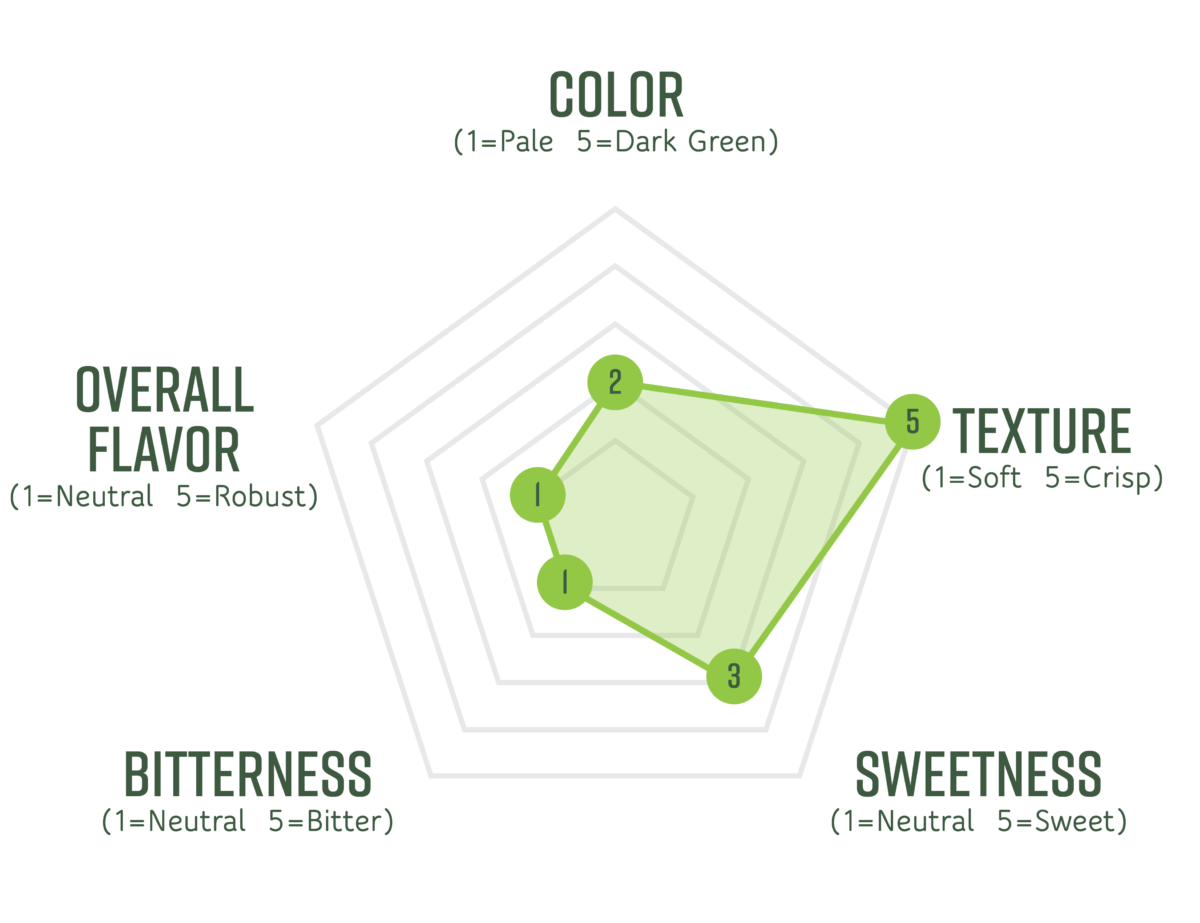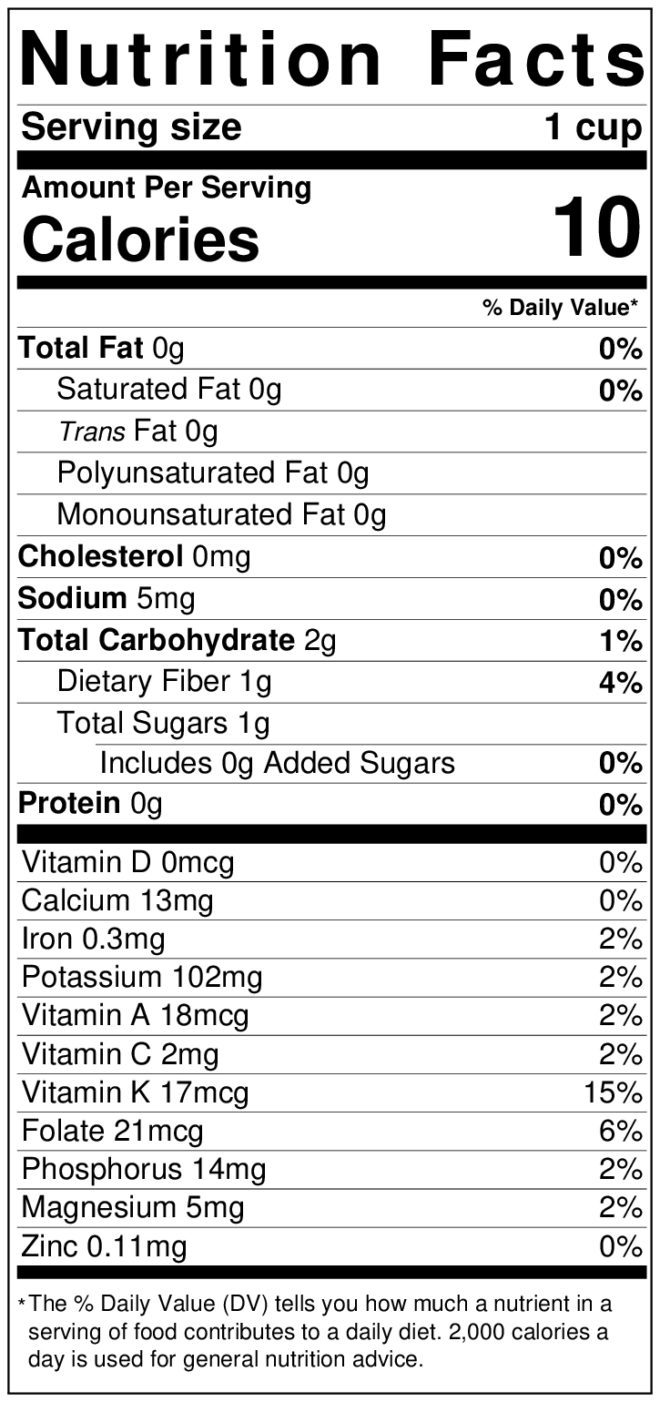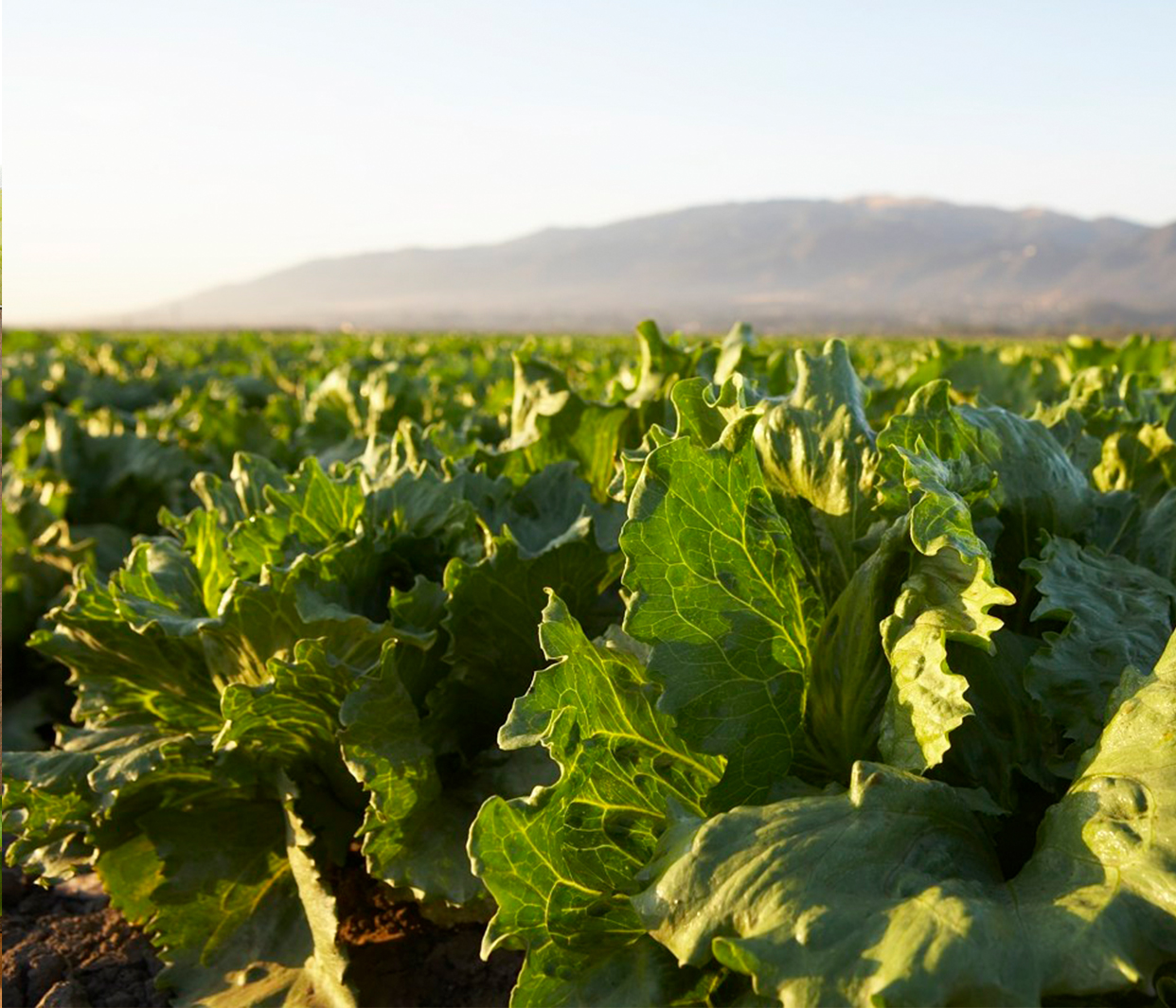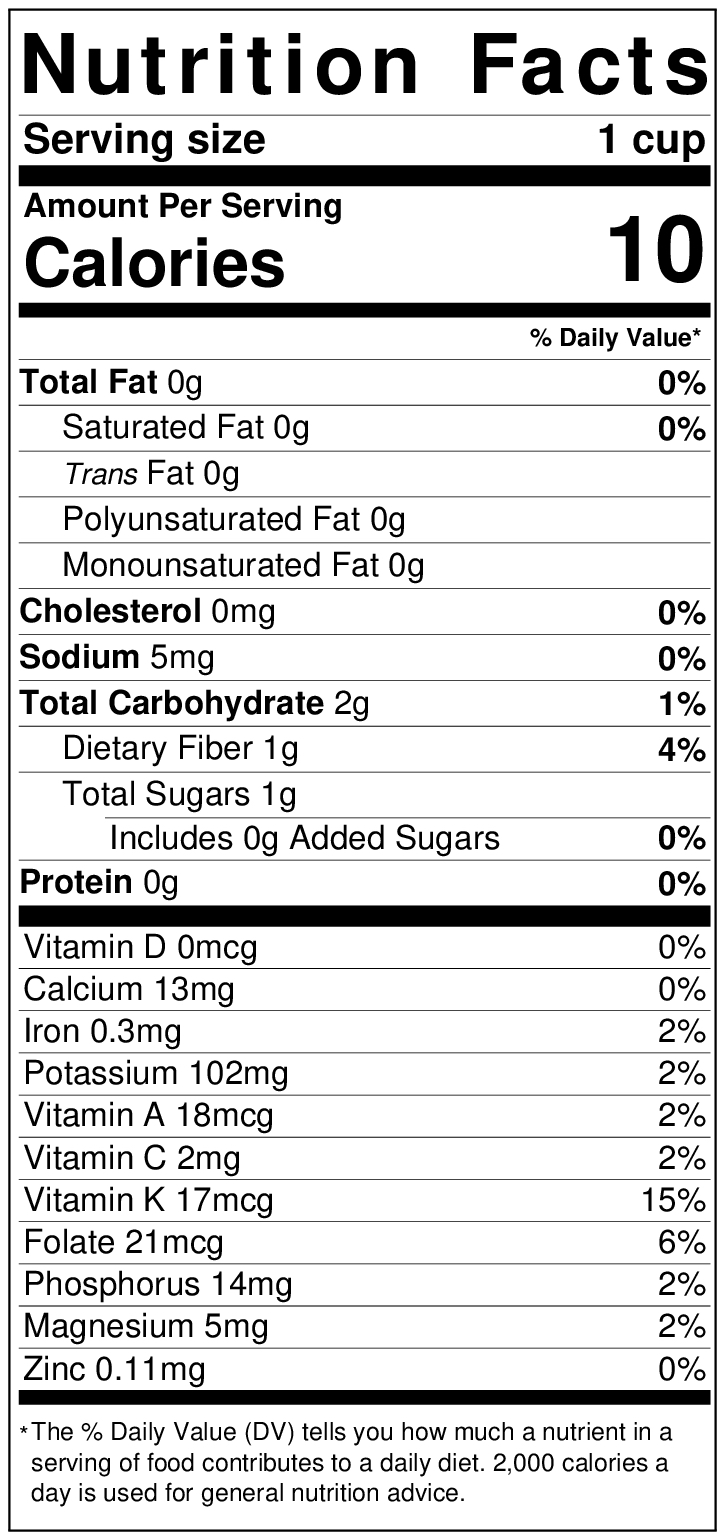
Iceberg Lettuce
SENSORY PROFILE:
Known for its mild flavor and firm, crunchy texture, iceberg lettuce is great for salads, shredded in snacks, as a garnish and on sandwiches. Like romaine, green, butter and red leaf lettuces, iceberg is a member of the asteraceae family and is actually related to the daisy. Often thought to be lacking in nutrient content, iceberg is a good source of vitamin K and has folate. It holds up well in storage and can be less expensive than other types of lettuce. It’s also the star of one of the greatest salads of all time – the Wedge.
SIMILAR GREENS:
Romaine Hearts
Finely Shaved Cabbage
Belgian Endive
Experiencing Iceberg:
Iceberg is a crispy and neutral canvas that works well in a variety of applications from sandwich topping to fork friendly chopped and shredded utility player.

Pro Tip: All leafy greens should be washed thoroughly prior to use. You can further increase the crispness of your leafy greens by allowing them to soak in ice water for up to 30 minutes. Leafy greens are made up of mostly water and begin to dehydrate as soon as they are harvested. Allowing them to soak helps them to rehydrate and increases their crispness.
Color
Iceberg delivers a 2 out of 5 for color with the core delivering a more pale color and the outer leaves a deeper green hue
Texture
Iceberg delivers a 5 out of 5 for texture with the heart of the head delivering the most crisp texture
Overall Flavor
Iceberg delivers a 1 of 5 for flavor with a tendency to being more sweet than bitter.
Iceberg Lettuce Nutrition Facts
- Iceberg provides a:
- Good source of vitamin K
- Folate


Growing Information
Iceberg lettuce is still in the #1 spot in terms of volume produced in the U.S., just beating out romaine. In California, over 80,000 acres are planted and a whopping 1.6 million tons are harvested each year. This lettuce is typically harvested by hand. Hand harvesting is performed using a special long bladed knife with an angled cutting edge. Blades are frequently placed in buckets of sanitizing solution throughout the day. If the heads are being packed for sale directly to the consumer, harvest crews will remove the outer ‘wrapper’ leaves and the heads are inserted in a plastic bag and then placed on a table where a packer seals the plastic bag and places the heads in a carton. Head lettuce is frequently field-packed into cartons for shipping. If the heads are going on for further processing, say for mixed salad, the lettuce heads may be cored in the field or stacked in bins for transport to a processing facility where they are cored, trimmed, washed, and precut into various sizes for market.
Usage Ideas
This classic and versatile green works as a salad base or a burger or sandwich topper
 Wedge Salad
Wedge Salad
Stay in the Know About Lettuce
Sign up for Health & Safety Alerts
Get the facts about lettuce and why it’s one of the safest and healthiest foods we can eat.

